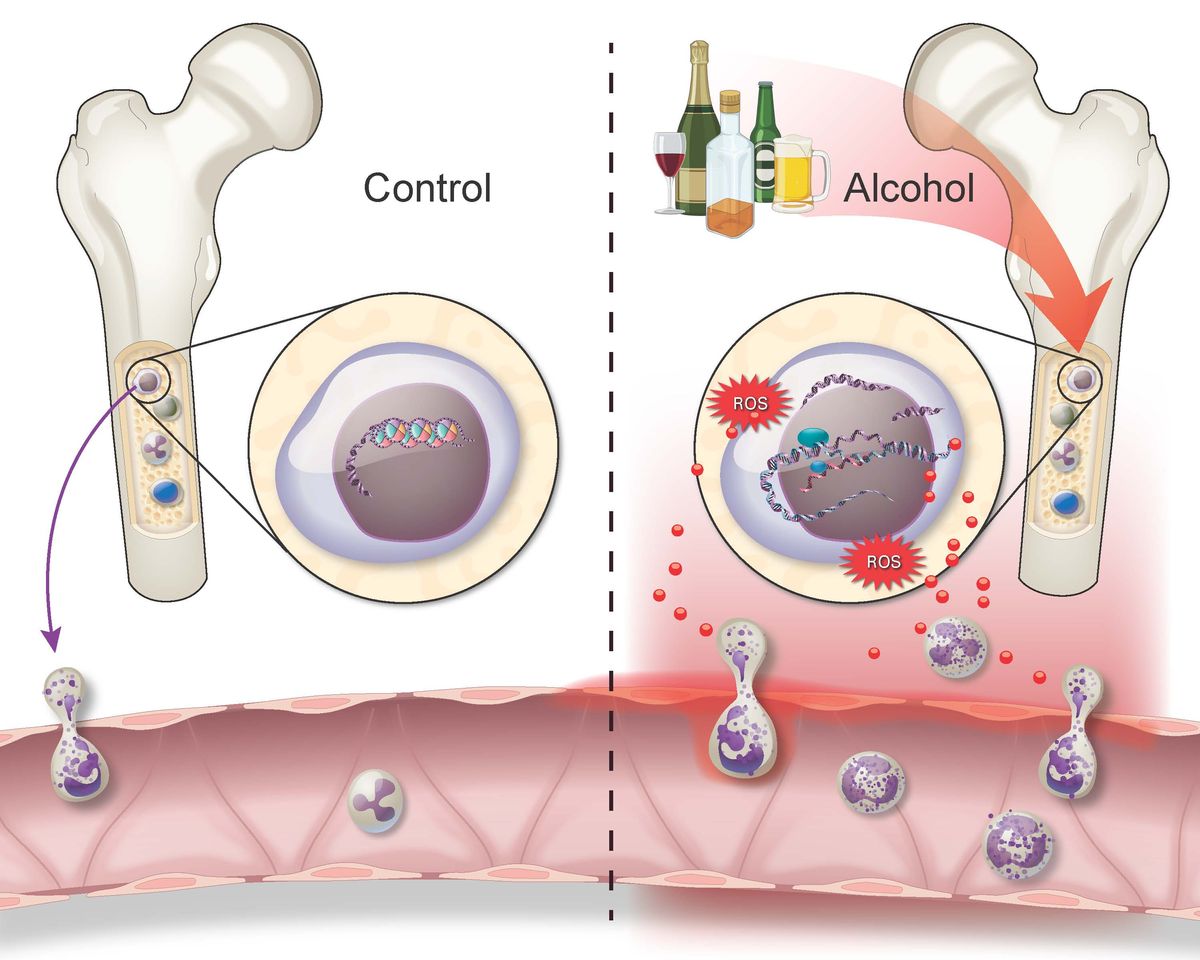Chronic alcohol consumption impairs production of blood and immune cells and dysregulates immune cell functions, but its long term effects remain poorly understood.1-3 Ilhem Messaoudi, an immunologist at the University of Kentucky, and others previously showed that alcohol reduced immune cells’ bacterial killing functions.4,5 In a paper published in Stem Cell Reports, Messaoudi and her team reported that chronic alcohol consumption altered DNA expression in immune stem cells and led to hyperinflammatory monocyte activity.6 These findings suggest that recovering from the effects of alcohol use could take longer than previously anticipated.

Alcohol induces inflammatory changes in immune stem cell progenitors in bone marrow that may last after drinking stops.
Matt Hazard and Thomas Dolan with BioRender
The team first studied a group of rhesus macaques who voluntarily heavily drank alcohol provided to them for one year. After twenty-eight days of abstinence to reflect the shortest period in rehabilitation programs, peripheral blood monocytes from alcohol-drinking animals continued to produce more inflammatory cytokines upon stimulation with bacterial ligands in vitro compared to those from nondrinking animals.
“That made us think, well, there’s got to be a problem with the stem cells,” Messaoudi said. The team isolated bone marrow cells from the animals after one year of heavy drinking and evaluated monocytes and stem cells for gene expression, cytokine production, and epigenetic changes that influence DNA accessibility.
In vitro differentiated progenitor cells from animals that drank heavily skewed toward “neutrophil-like” monocytes with greater inflammatory gene and cytokine expression. These findings matched the chromatin accessibility data, which showed more openness in genes associated with defense and inflammatory responses in bone marrow monocytes and stem cells from alcohol-drinking animals.
“The complementary techniques they use to analyze the situation were very thorough and very elegant,” said Robert Siggins, a physiologist at Louisiana State University who was not affiliated with the study.
Messaoudi said that these findings could be important down the road when developing treatments for patients with alcohol use disorders.
References
- Smith C, et al. Adv Exp Med Biol. 2015;815:349-359
- Maraslioglu M, et al. Mediators Inflamm. 2014;2014
- Haag F, et al. Eur J Trauma Emerg Surg. 2022;48:2689-2699
- Raasch CE, et al. Alcohol: Clin Exp Res. 2010;34(12):2035-2043
- Lewis SA, et al. Front Immunol. 2021;12(2021): 724015
- Lewis SA, et al. Stem Cell Rep. 2023;18(9):1884-1897
